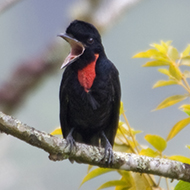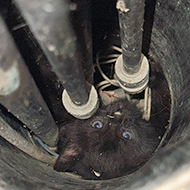New research shows crows can "reason" A recent study has found that crows are the first known animals, besides humans, to recognise cause and effect.
Researchers from the University of Cambridge, the University of Aukland, New Zealand, and the University of Vienna, Austria, collaborated for a study on crow behaviour.
The universities used eight wild crows in their experiment, leaving a stick in their enclosure. They used two separate series of events - in one series a human entered the enclosure and the stick moved, in the second series the stick moved, yet no one entered the enclosure.
The crows were observed using tools to remove food from a box. When the human was present and the stick moved, the crows tended to continue their efforts to probe food using the tool, whereas when the human was absent they more frequently abandoned their efforts.
The findings were published in the Proceedings of the National Academy of Sciences, stating that the experiment proved crows attributed the stick's movement to human presence. It also stated that neither sex nor age affected this behaviour.
It is thought that crows use their ability to "reason" in the wild when anticipating food and danger. Scientists also believe the understanding of cause and effect could be a more common ability in animals than first anticipated.






 RCVS Knowledge has called on vet practices to audit their post-operative neutering outcomes.
RCVS Knowledge has called on vet practices to audit their post-operative neutering outcomes.
